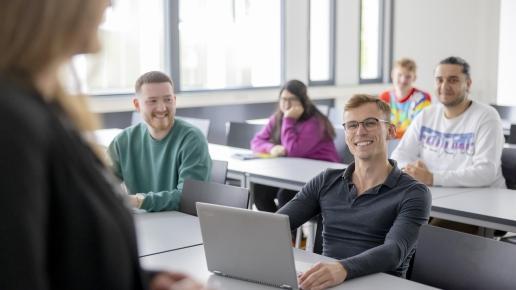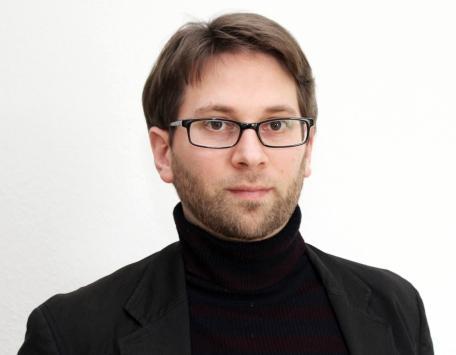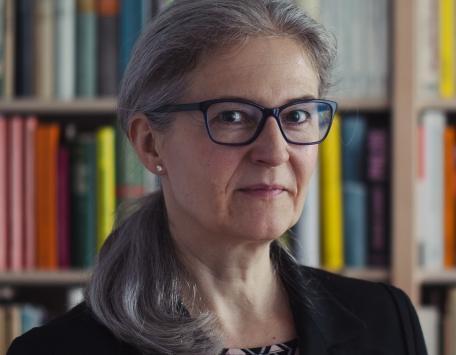MA: Educational Science: Educational Theory and Cultural Practices
The focus of the course is on the topic of 'cultural education', which is particularly evident in the connection between educational theory and cultural practices. In this sense, the course pays particular attention to the significance of cultural practices in the educational biographies of children, young people and adults, both in institutionalized settings as well as in everyday life and in public.

Information for prospective students
The focus of the course is on the topic of 'cultural education', which is particularly evident in the connection between educational theory and cultural practices.
In this sense, the course pays particular attention to the significance of cultural practices in the educational biographies of children, young people and adults, both in institutionalized settings as well as in everyday life and in public.
On the one hand, the teaching and research offered by the course aims to enable students to recognize, research and critically assess the educational content of different cultural practices. This includes, for example, forms of artistic production and reception, but also forms of everyday life (as an individual or as part of different ways of life).
On the other hand, the course enables you to analyze and evaluate educational processes as cultural practices in their physical, material, spatial, temporal and social dimensions.
During your studies, you will deal with topics such as 'Education in Pop Culture', 'Gamification', 'Popular Music', 'Art in Public Space' or 'Architecture and Fashion'.
In terms of methodology and scientific theory, great importance is attached to the examination of empirical research methods and cultural-scientific educational research.
The curriculum also includes a research project that enables you to work on a topic of your choice.
We would like to invite you to our information event on the Master's program "Educational Science: Educational Theory and Cultural Practices" in the winter semester 2025/26!
It will take place on the following dates:
Tuesday, Nov. 18, 2025, 6-8 p.m., ONLINE, here
Monday, 15.12.2025, 6-8 p.m., ONLINE, namely here
Tuesday, 27.01.2026, 6-8 p.m., ONLINE, here
Wednesday, 25.02.2026 , 4-6 p.m., ONLINE, namely here
What is it about?
We will introduce you to the content profile, the thematic focus and the structure of the degree program. In addition, we will explain the admission requirements for the Master's degree program and discuss the career prospects that this Master's degree program will open up for you. Of course, we will also answer your questions in detail!
You can download the presentation slides here
You can also find the information event in unisono under the number 2EP127000V. Registration is possible, but not required.
The Master's degree program 'Educational Science: Educational Theory and Cultural Practices' comprises the following modules:
Compulsory modules:
1. educational theory and cultural practices
Contents: In-depth study of educational theories, overview of current discourse topics in educational theory, thematization and analysis of cultural practices in educational theory (e.g. with regard to power or distinction)
2. forms of life: Education and subjectivation
Contents: Connections between forms of life, pedagogy and culture, subject theories and forms of subjectivation in the field of tension between pedagogical and cultural practices and forms of life
3. cultural education
Contents: Theories and practical approaches of cultural/aesthetic education; contemporary issues and methods of cultural education and artistic research as well as social problem areas of cultural education (e.g. heterogeneity and diversity)
4. empirical research methods
Contents: basic literature on research methods and empirical studies in which methods of results and evaluation are applied, development of own research questions and research designs
5. theory of science and cultural-scientific educational research
Contents: Different justifications of pedagogy as a science, theory and practice of cultural-scientific educational research, central topics, objects and methods of cultural-scientific educational research
6. research project
Contents: Intensive examination of either a) a historically, systematically or empirically oriented topic following a seminar from the Master's program or b) a topic relevant to educational science that has not yet been dealt with in the Master's program
Compulsory elective modules (3 out of 5):
1. philosophy of upbringing and education
Contents: fundamental questions of educational and educational philosophy in the past and present, in particular epistemological, ethical and anthropological questions
2. specialization in cultural education
Contents: in-depth examination of theories and practical approaches to cultural/aesthetic education; contemporary issues and methods of cultural education and artistic research as well as social problem areas of cultural education
3. culture and diversity
Contents: Diversity of cultures and cultural concepts, insights into social science and humanities understandings of cultural research, postcolonial, gender-theoretical and relativistic cultural criticism
4. school pedagogy/school research
Contents: School theory, professionalism, expertise and competence of teachers, concepts, instruments and findings on the quality of schools, teaching and teacher training, diagnosis and support
5. adult education/further education
Contents: Upbringing, education and teaching in the context of vocational education; youth and student research and biographical reflections in the context of vocational education; counseling and interviewing, violence, school and exam anxiety
Educational scientists can use their knowledge and skills in relation to educationally and culturally relevant processes and phenomena in various areas. Accordingly, graduates of the Master's degree program 'Educational Science: Educational Theory and Cultural Practices' have a wide range of career prospects.
For example, they can work
- in the field of cultural education (e.g. in youth art schools, cultural centers and associations, play mobiles or hands-on circuses)
- in various educational institutions (schools; social work; adult/further education)
- in cultural institutions (e.g. theaters, museums, libraries)
- in foundations, political parties, associations, NGOs or international organizations
- in the newspaper and publishing industry
- in the education departments of companies
- in science
- at non-university research institutions
- as a self-employed person in the educational or cultural sector
Tip:
The Berufsverband der Erziehungswissenschaftlerinnen und Erziehungswissenschaftler (BVPäd) offers comprehensive information and a differentiated range of advice on studying, working and careers in educational fields: www.bv-paed.de
Here you will find options for when and in what order you can complete the different modules:
Full-time:
Option a)
| Modules | CP (total) | LP (semester) | |||
| 1. | 2. | 3. | 4. | ||
| Educational theory and cultural practices (P) | 12 | 6 | 6 | ||
| Forms of life: Education and subjectivation (P) | 9 | 3 | 6 | ||
| Cultural education (P) | 9 | 3 | 6 | ||
| Empirical research methods (P) | 6 | 6 | |||
| Educational Research in Cultural Studies and Philosophy of Science (P) | 9 | 3 | 6 | ||
| Research project (P) | 9 | 9 | |||
| Compulsory elective module (WP) 1 | 12 | 6 | 6 | ||
| Compulsory elective module (WP) 2 | 12 | 6 | 6 | ||
| Compulsory elective module (WP) 3 | 12 | 6 | 6 | ||
| 2EWMA10 Master's thesis | 30 | 30 | |||
| Total | 120 | 30 | 33 | 27 | 30 |
Variant b)
| Modules | CP (total) | LP (semester) | |||
| 1. | 2. | 3. | 4. | ||
| 2EWMA01 Educational Theory and Cultural Practices (P) | 12 | 6 | 6 | ||
| 2EWMA02 Life forms: Education and subjectivation (P) | 9 | 6 | 3 | ||
| 2EWMA03 Cultural education (P) | 9 | 3 | 6 | ||
| 2EWMA04 Empirical research methods (P) | 6 | 6 | |||
| 2EWMA05 Cultural Studies in Educational Research and Philosophy of Science (P) | 9 | 3 | 6 | ||
| 2EWMA06 Research project (P) | 9 | 9 | |||
| Compulsory elective module (WP) 1 | 12 | 6 | 6 | ||
| Compulsory elective module (WP) 2 | 12 | 6 | 6 | ||
| Compulsory elective module (WP) 3 | 12 | 6 | 6 | ||
| 2EWMA10 Master's thesis | 30 | 30 | |||
| Total | 120 | 30 | 33 | 27 | 30 |
Part-time:
| Modules | LP (total) | LP (semester) | |||||||
| 1. | 2. | 3. | 4. | 5. | 6. | 7. | 8. | ||
| Educational theory and cultural practices (P) | 12 | 6 | 6 | ||||||
| Forms of life: Education and subjectivation (P) | 9 | 3 | 6 | ||||||
| Cultural education (P) | 9 | 3 | 6 | ||||||
| Empirical research methods (P) | 6 | 6 | |||||||
| Educational Research in Cultural Studies and Philosophy of Science (P) | 9 | 3 | 6 | ||||||
| Research project (P) | 9 | 9 | |||||||
| Compulsory elective module (WP) 1 | 12 | 6 | 6 | ||||||
| Compulsory elective module (WP) 2 | 12 | 6 | 6 | ||||||
| Compulsory elective module (WP) 3 | 12 | 6 | 6 | ||||||
| Master's thesis | 30 | 15 | 15 | ||||||
| Total | 120 | 15 | 15 | 15 | 18 | 12 | 15 | 15 | 15 |
Academic advising and questions about studying

MAEW - Examination Office: Petra Wengler
Contact
Phone: (+49) 271 740 3448
Opening hours
14:00-15:00 Wednesday 08:30-12:30 Thursday 08:30-12:30 Friday 08:30-12:30
Postal address
Adolf-Reichwein-Str. 2a
57068 Siegen
Room: AR-K 107
Correspondence can be posted in the red post box (in the corridor in front of room AR-K 100).
